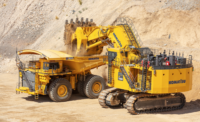Whether it is an outlier event or something that occurs more frequently, the coronavirus pandemic has inflicted damage on the global economy—and construction—that can’t be judged or measured yet. But the responses by the world’s governments so far have differed starkly and need to be evaluated.
[For ENR’s latest coverage of the impacts of the COVID-19 pandemic, click here]
Although some countries have gone into total lockdown as a precaution, U.S. states and cities are now falling into line in limiting large gatherings, closing schools and enacting curfews. Retail business operators are following state governments’ lead either by shutting or emphasizing take-out service. Public places are emptying as Americans retreat to their homes.
Closing down construction jobsites across the board, on the other hand, seems at this moment like a case of good intentions going too far.
Design and construction employers were already grappling with the immediate effects of the pandemic—disrupted workflows and business development processes, canceled meetings and distractions related to income, family health and concern about what the future will bring. When, for example, will crippled business sectors recover?
And then the emergency took a more ominous turn for construction as first individual projects shut down, due either to the local or regional level of infection or a positive test by an employee, and then the decision by Boston to shut all projects and Pennsylvania to stop transportation work. Then Vice President Mike Pence, at a briefing for the media, urged construction contractors to donate their inventory of N95 masks to local hospitals and to forgo additional orders.
The mask request, made as ENR went to press, at first seems reasonable. The masks are not commonly used on a day-to-day basis in many trades, and so it appears, for now, that any hardship would be minimal. If an employer is using the correct methods for dust and silica control, the masks would not be needed to protect a worker.
Closing down construction jobsites across the board, on the other hand, seems at this moment like a case of good intentions going too far. While we understand the complexities of selective shutdowns, they are a better choice than putting so many construction crafts out of work. Delays in project completions, for one thing, will likely trigger delay claims and sometimes litigation, adding to the burdens that could lead contractors to failure.
More important, as the Associated General Contractors has stated, construction firms are already increasing hygiene and halting group gatherings of staff. And construction workers, AGC points out, already wear protective equipment, including gloves that will help protect them and their co-workers. When a coronavirus flu vaccine becomes available, construction industry employees, which have the lowest rate of flu vaccination, according to a 2013 study published in the American Journal of Infection Control, will have to go get that shot. But for now, with no further data, construction crafts seem reasonably safe, and uniform project shutdowns are premature.




Post a comment to this article
Report Abusive Comment